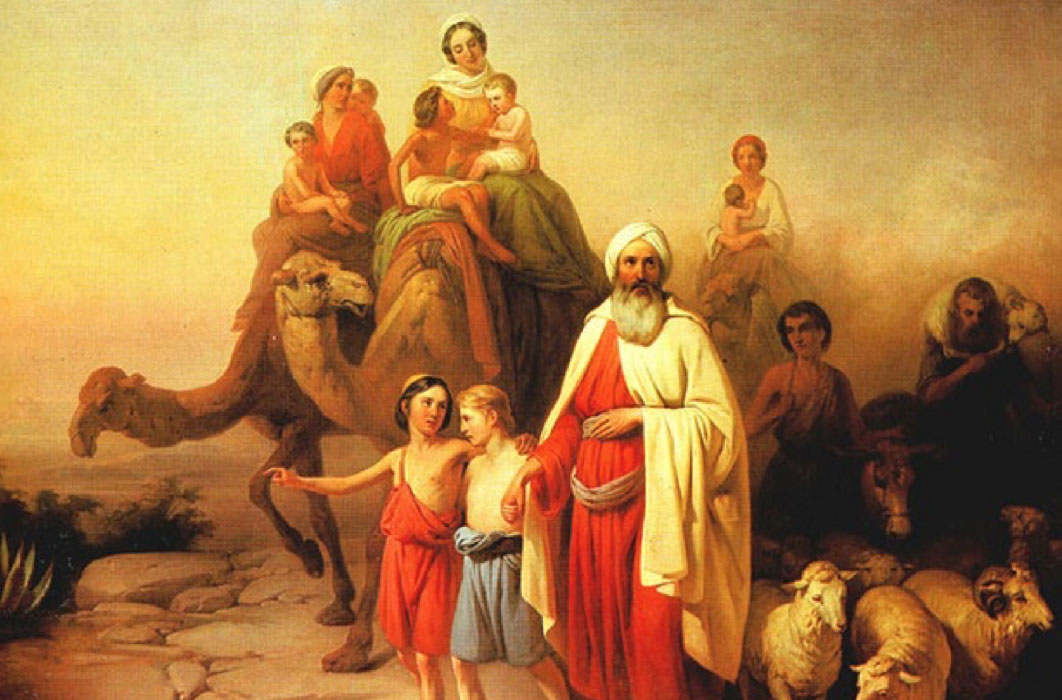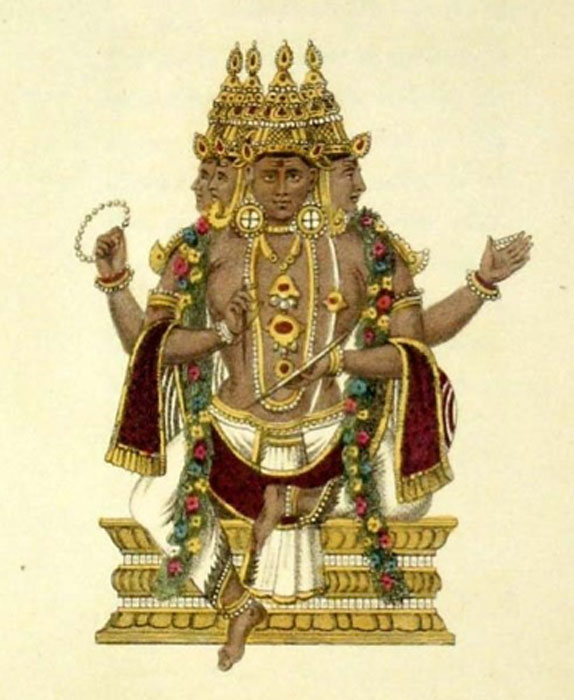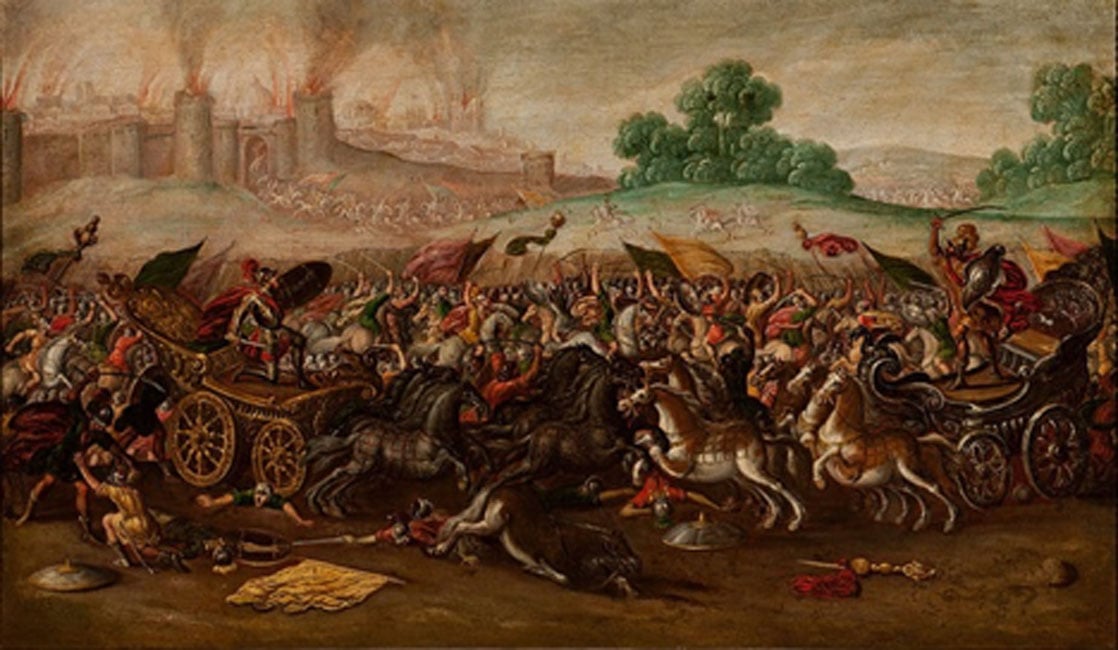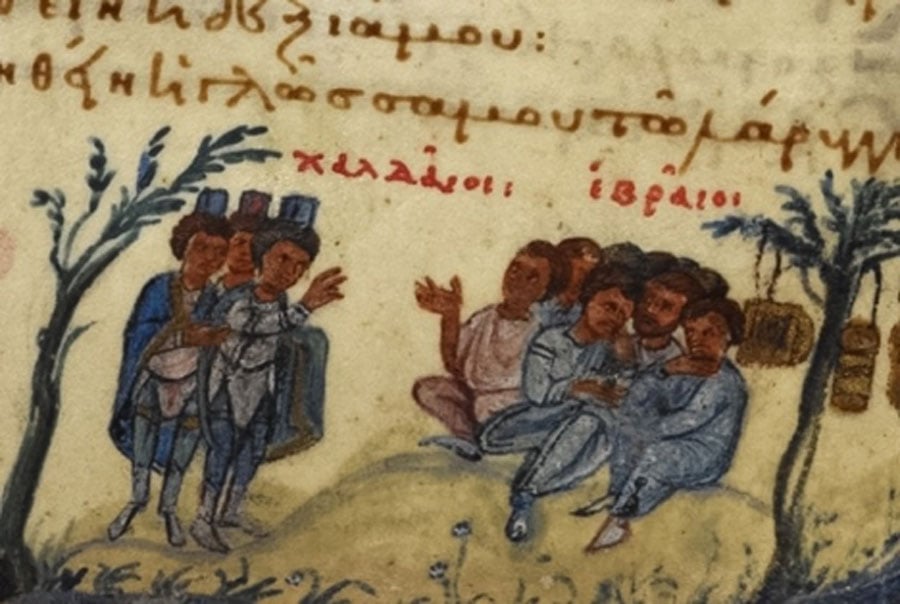
The Other Side of the Flood: Was Abraham of Indian Descent?
A fascinating hypothesis, developed in recent years, proposes a vision of the patriarch Abraham totally different from what eminent biblical studies have until today reported. In 1552, the French linguist, astronomer and cabbalist Guillaume Postel (1510-1581) was among the first to correlate Abraham with Brahma, deducing his hypotheses from the study of the Jewish Zohar. In 1769, Immanuel Kant, similarly to what Voltaire wrote before him, compared Adam and Abraham with the Hindu Adimo and Brahma. In 1799, Joseph Priestley, in his text A Comparison of the Institutions of Moses with those of the Hindus and other Ancient Nations, took up the claims of Voltaire and Kant by re-proposing the possible derivation of Abraham from Brahma.

Brahma. Hand coloured engravings by Frederic Shoberl from his work 'The World in Miniature: Hindoostan'. London: R. Ackerman (1820) (Pubic Domain)
Ancient References
The correlation between the Jewish people and India is rooted deep in our historiography. Recovering ancient sources, one finds a first reference in Jewish Antiquities by Flavius Josephus (37 - 100 AD) in which a sentence by the Greek philosopher Aristotle was quoted as saying: "These Jews are derived from the Indian philosophers; they are called by the Indians, Calani". Clearco di Soli (who lived in the fourth to third century BC) in his treatise on Sleep, wrote: "...the Jews are descended from the philosophers of India. In India the philosophers are called Calaniani and in Syria they are called Jews. The name of their capital is very difficult to pronounce. It's called Jerusalem".

The Burning of Jerusalem by Nebuchadnezzar’s Army by Juan de la Corte (1580 - 1663) Fundación Banco Santander Collection (Public Domain)
Another great authority, Megasthenes (350 BC - 290 BC) "was sent to India by Seleucus Nicator about 300 years before Christ. His stories are finding new confirmations every day from new research. He says the Jews "were an Indian tribe or sect, called Kalani ...".
Renaissance References
The ancient sources, extremely authoritative, seem to agree in identifying at least a part of the initial Jewish knowledge with a heritage from India. In Skanda Purana it's clearly stated that Brahma married Saraswathi the Goddess of wisdom. In the Middle East history it is recognized that Abraham wife's name is Sarah. There is similarity even in the name of Sarah and Saraswathi. One finds many similarities, which seem to be more than coincidental, between the Hindu god Brahma and his wife Saraswathi and the Jewish Abraham and Sarah. One of the most illustrious figures in the history of the last centuries, Voltaire, bears witness to this. In his Philosophical Dictionary published in 1764, he wrote in no uncertain terms: “Moreover, this name (Bram-Abram) was famous in India and Persia: many scholars even claim that he was the same legislator that the Greeks called Zoroaster. Others assert that it was the Brahma of the Indians: but this is not proved.”

Three Chaldean soldiers with Hebrew captives. 11th century Greek painter (Public Domain)




